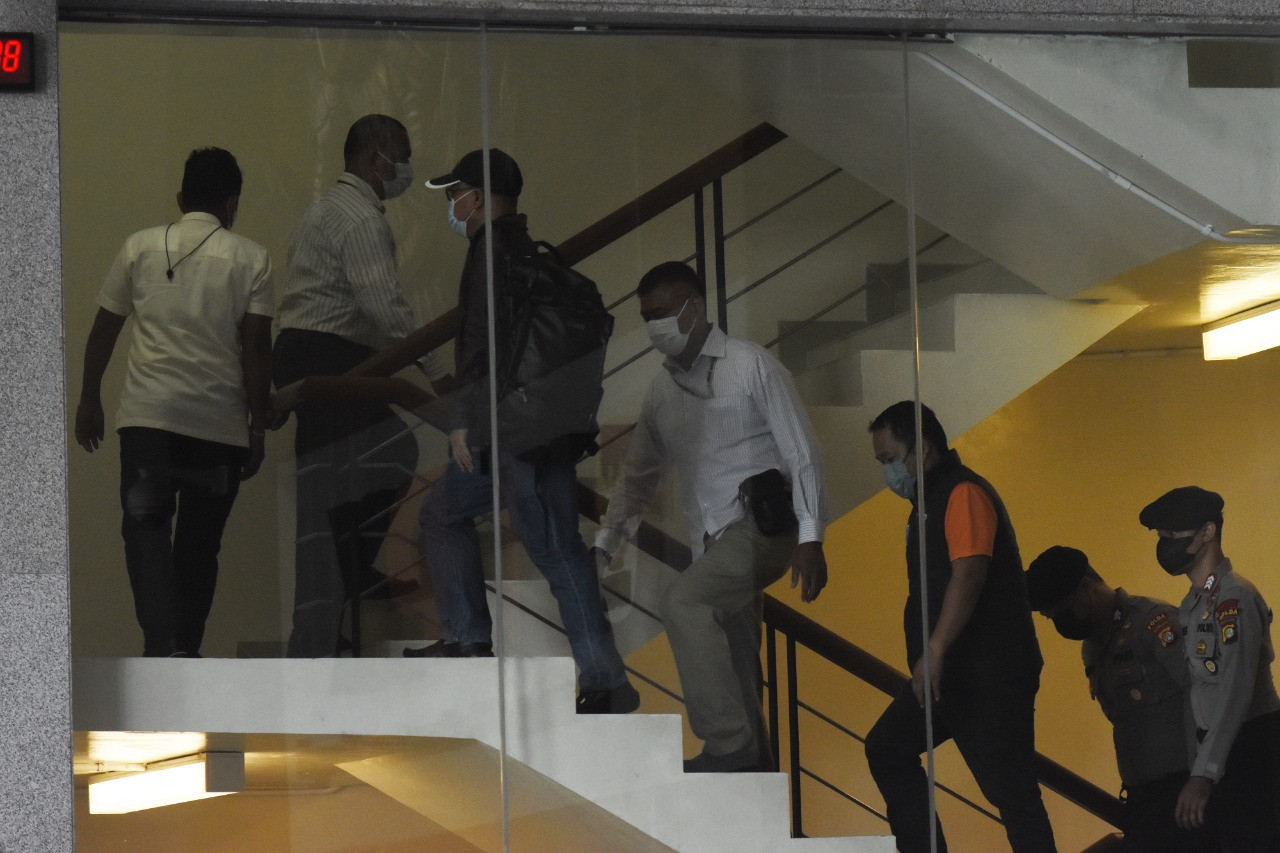Corruption perception index: Moving up or slipping down?
The government’s continuing efforts to make Indonesia more attractive to investments and be more business-friendly may not be enough to pump our corruption perception index back up.
Change Size

A
t this time of year, government officials and anticorruption activists around the world await with trepidation the launch of Transparency International’s Corruption Perception Index (CPI), an indicator of how global experts and the business community perceive a country’s success in dealing with corruption.
We in Indonesia are no exception. Particularly, when up to 2019, Indonesia was on an upward trajectory, inching up the rankings and improving our score to 40 over a span of two decades, only to find ourselves slipping back to where we were in 2016 when our score was 37. Will our score and ranking be better in 2021?
Looking back over the year, it is unlikely that there will be a significant change.
The government, like many other governments, has had to deal with the socioeconomic and public health impact of COVID-19. Its concern was — and still is — how to control the spread of the virus and at the same time keep the economy afloat. It has done relatively well.
The economy continued to recover in 2021 and is expected to grow by 5.2 percent this year — if we manage the Delta variant successfully. By the end of December 2021, Indonesia had already vaccinated 59.2 percent of its population or 161.1 million people with the first dose, 42.1 percent or 113.7 million people with the second dose and 1.29 million have already received their booster shots.
Given the size of the country and the logistical challenges it presents, this is a commendable feat and testimony to the Indonesian spirit of gotong royong (mutual cooperation), of coming together in times of crisis.
The past year, however, has also been a year of controversy during which a pragmatic government has opted for maintaining stability to protect growth over strengthening governance. The passing of the controversial Job Creation Law is a clear example of this emphasis on economic growth. Its well-meaning intention was to cut through the confusing red tape governing labor and investments to create a business-friendly environment, ignoring the many protests over both the content and the format of the law, as well as the process.
As soon as the law came into force in November 2020, labor organizations submitted a request for a judicial review to the Constitutional Court. A year later, the court ruled the law “conditionally unconstitutional”, meaning that it must be amended within two years or be deemed invalid. What this means in practice in-between time, is left to the legal experts and business practitioners to figure out and for civil society to monitor the consequences.
Last year also spelled the end of the Corruption Eradication Commission (KPK) as a credible and respected authority in the fight against corruption. In accordance with the latest Law No.19/2019 governing the KPK, it is now part of the executive branch and no longer primus inter pares (first among equals) among law enforcement agencies.
The esprit de corps (sense of pride and common loyalty) and the sense of almost divine mission to fight corruption — instilled from the day the agency was established — are no more. Its independence and credibility are being questioned, as well as its willingness to supervise other government agencies, such as the Attorney General’s Office (AGO) and the police force.
Since Law No.19 came into force, we have seen a major drop in the number of cases handled by the KPK. In the first half of 2021, it handled only 37 suspects and 13 cases involving Rp 331 billion (US$23.10 million), compared to 61 suspects and 28 cases involving Rp 6 trillion in the same period in 2019. Even the police force was doing better, dealing with 45 cases.
With the KPK opting to prioritize corruption prevention rather than investigation and prosecution, the AGO has become more aggressive. In that same 2021 first semester, it investigated 151 cases, involving 363 suspects and state funds amounting to Rp 26.1 trillion. The KPK seems to be happy to take a back seat instead of taking the lead.
Indeed, there have been some high-profile cases this past year, such as the conviction of former social affairs and fisheries ministers, the Djoko Tjandra case with prosecutor Pinangki and police generals abetting in his crime, politicians and local government officials being investigated and the exposure of major corruption in state insurance companies Jiwasraya and Asabri.
These developments may be why the general public is optimistic about eradicating corruption. Or perhaps it is more forgiving toward the government due to the good work it has done in controlling COVID-19.
According to a survey done in December 2021 by respected pollster Indikator Politik Indonesia, 57 percent of respondents believe that the government is currently doing a good or reasonable job in fighting corruption. SMRC, another reputable pollster, found in its December survey that in the coming year, 43.8 percent of respondents believe that corruption will decline and that 54.8 percent believe that government efforts to fight corruption will be good or very good.
Does this mean that our CPI score will be better? Not necessarily.
The CPI is a composite index of corruption surveys and assessments done by global institutions, such as the World Economic Forum, the EIU Country Ratings and the PRS International Country Risk Guide. The composite index does not include surveys done by local pollsters such as Indikator and SMRC. These surveys also seek the perception of international experts and businessmen, not local citizens.
Of the nine surveys used to formulate Indonesia’s 2020 CPI performance, scores of the five looking at the political and business environment dropped; three remained stagnant, including those that look at public service delivery; while only the World Justice Project’s Rule of Law index improved by 1 point.
This year’s CPI, set to be announced on Jan. 25, is focusing on corruption, human rights and democracy. As such, the government’s continuing efforts to make Indonesia more attractive to investments and be more business-friendly may not be enough to pump our score back up. In other words, the CPI is not just about corruption; it is also about strengthening our democratic institutions, protecting our civic space and holding power to account.
Have we nurtured our hard-won democracy sufficiently during the past year or was it enough to just concentrate on our economic growth and leave democracy out of it? We shall soon know.
***
The writer is a steering committee member of the Soedarpo Sastrosatomo Center for Ethics and Organizational Culture and an international council member at Transparency International.









